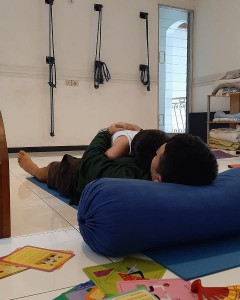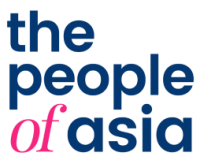Let’s face it: the coronavirus pandemic has taken a harsh toll on our mental health. Amid our efforts to stay safe while staying ‘sane’ during isolation and distancing, we can’t deny the ongoing effects of this pandemic on our mental health.
According to the latest survey by Indonesian Association of Clinical Psychologists, 57,6% of 14.619 Indonesians identify themselves to have depression symptoms. Moreover, 58,9% of them admitted to think about death and self-harm, and 15,4% even think about it everyday.
Isolation, fear, uncertainty, and global chaos have caused this psychological pressure linked to anxiety and stress. We can’t give ourselves a break in the way that we normally would, like going out with our friends, having a picnic, and such. But on the bright side, now becomes a good time to spend more time with yourself, more precisely listening to yourself, and use that as a form of self-support.
How did we come to accumulate negative feelings?
It’s natural for the body to react to threats such as stress triggers. When faced with a potential danger, the sympathetic nervous system automatically goes into a defensive mode. It is controlled by a part of the brain that controls emotions called the amygdala.
In stressful situations, the amygdala sends a "distress signal" to the brain and causes the release of stress hormones cortisol and adrenaline. This is where we feel our muscles tensed, heart beats faster, and shortness of breath.
Despite having ‘more time’ for ourselves, with the constant negative news--in some way, the information overload is unavoidable on social media platforms, which we use to stay connected with our loved ones--and minimum social interaction, we can easily fall into overthinking, anxiety, sleeplessness, and so on.
For workers, working from home can put even more pressure and more tiring than face-to-face meetings. Yes, you don’t have to be stuck in the traffic or bother putting on makeup. But, trying to cooperate with the team from a distance causes more anxiety triggers.
“When is she going to reply? Why did he give a short reply? Is my boss on her way to check my report?”
And then, there are virtual meetings. The fact that there is limited interaction, drives us to put more attention and concentration into the meeting. Thus, causing us to feel more tired than a face-to-face meeting.
What we can do to cope with it
“When the crowded Vietnamese refugee boats met with storms or pirates, if everyone panicked all would be lost. But if even one person on the boat remained calm and centered, it was enough. It showed the way for everyone to survive.”
--Thich Nhat Hanh
In a ‘chaotic’ situation, try to remain calm and centered. A popular and classic (and cheap!) method is to meditate. Meditation is mostly referred to the practice of sitting still, closing our eyes, and focusing on our breath. But in order to achieve mindfulness, the practice may differ from one person to another.
One could be reading, painting, exercising… The point is to stay focused and keep a calm state of mind. We often take this for granted, but the ability to stay focused is important to stay balanced.
Remember to take small steps. Aim for 5 minutes of meditation, for example, or 10 minutes of morning run. Use this time to connect with yourself; feel the sensations of your breath, your emotions.
Don’t try to change anything, feeling like you need to avoid or remove a certain emotion. Instead, acknowledge it. Slowly learn how to hold that emotion with appreciation. Be kind to yourself.
Last but not least, do it consistently. Meditation, just like diet, only works through small consistent steps. That is how it will give you a great impact.





















